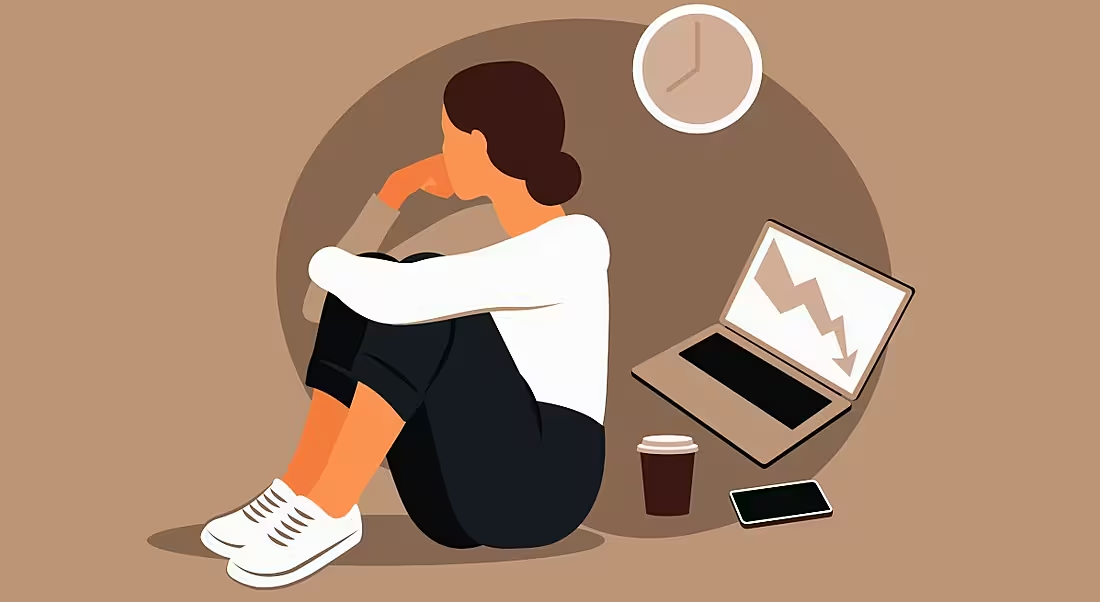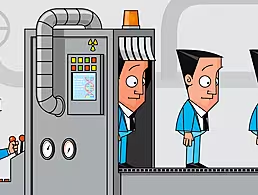Gen Z is more willing than any other generation to address burnout. Careers coach Ciara Spillane says employers should listen, learn and take action to help early career workers maintain their wellbeing.
Research tells us that early career workers are more likely to experience burnout. For example, a study from July of this year that surveyed more than 1,000 US workers found that those aged 18 to 24 were the most likely to report burnout symptoms. A majority (85pc) of this group said they had experienced burnout.
The prevalence of burnout among young people starting their careers is not a surprise to Ireland-based careers coach Ciara Spillane. In her view, burnout is caused by a combination of societal, organisational and personal factors.
“Societal factors are those that are outside of our control and affect our wellbeing and lifestyle,” she says. “For younger workers, this includes the rise in redundancies within some sectors such as tech. Unfortunately, these layoffs are most likely to affect new hires and more junior roles. There is also an ongoing cost-of-living and housing crisis which impacts younger workers who are trying to find accommodation or save for mortgages.”
Organisational factors are the elements that are in the control of employers. For example, where people work, how they work and the type of workload they have. According to Spillane, these can clash with personal factors like how strong a person’s boundaries are. If they agree to take on too much work because their employer is taking advantage, that is obviously a recipe for disaster.
Not all ‘lazy girls’, but stressed and exhausted
She says that younger workers are stressed and exhausted despite the “trends we are seeing on TikTok about ‘lazy girl jobs’ and quiet quitting which give the impression that Gen Z workers are shy about hard work”.
It’s interesting that Spillane brings up Gen Z’s use of social media, in particular, TikTok, on which users share diary-style vlogs about daily working life. In one recent case, a video a young woman made about the difficulties of maintaining a ‘9 to 5’ and balancing her personal time went viral. Whether she intended for the video to get the traction it received is debatable. Perhaps she was venting, but her tears and her account of her commuting woes and difficulties in focusing rubbed a lot of people up the wrong way. Many said she was a stereotypical example of an entitled Gen Z. Though others saluted her honesty and pointed out the often harsh reality of what workers are expected to put up with for low wages and worsening conditions.
One thing that TikToker’s experience – and the reaction to it – showed was that young workers are sometimes unfairly demonised as being lazy and ungrateful. Perhaps it is the case that they have different coping mechanisms from older workers. Gen Z are certainly more open about their feelings and what they want and don’t want from employers, whereas older workers are often about maintaining a stiff upper lip.
For example, the US survey found that more than half of workers in the 55 to 64 age bracket claimed to have experienced burnout and the majority indicated that they were familiar with the symptoms. They just don’t seem to want to address it. Across all age brackets, the overall rate of people who had suffered from burnout was 74pc.
With experience should come patience…
Spillane thinks we need to listen more to Gen Z employees when they say they are struggling. She points out that the current crop of early career professionals is starting at a disadvantage having completed university online. Therefore, she says, their confidence might be low. Older and more experienced workers can look out for these more junior colleagues by providing encouragement and structured learning opportunities.
“Encourage open communication and positive feedback and regularly check in with your colleagues. Experienced workers can look out for their junior colleagues by creating opportunities for social engagement and learning. When teams are working together online or in person, this time must be used well to maximise its benefits. Make time for team-building opportunities, training and mentoring.”
Spillane also points out that providing flexible working models is crucial to attracting and retaining Gen Z talent. “It shouldn’t be presumed that only working parents benefit from additional time off, it can be beneficial for all workers.”
10 things you need to know direct to your inbox every weekday. Sign up for the Daily Brief, Silicon Republic’s digest of essential sci-tech news.




